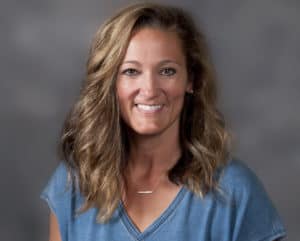Orion Family Services Receives Qualified Treatment Trainee Grant to Help Increase the Number of Licensed Mental Health Professionals in Wisconsin

Orion Family Services, based in Madison, Wis., recently received a University of Wisconsin (Whitewater) Qualified Treatment Trainee (QTT) grant. The program, funded by the Wisconsin Department of Health Services, is coordinated with the University’s Center for Inclusive Transition, Education and Employment. It is designed to increase the quality of training and reflective supervision for supervisors in the state through emerging best practices and self reflection. The program also is geared to encouraging the hiring of new or additional post-graduate QTTs in order to increase the number of licensed mental health professionals in Wisconsin.
The grant, which was awarded in October 2021, is enabling Jennifer Hawley, Orion’s chief program officer and senior clinical supervisor, to serve as Orion’s in-house trainer. She already has begun the 6-month training program to discover new ways to best support new clinicians in the field who have earned their master’s degrees in social work, counseling, or marriage and family therapy and are working towards earning their professional licensing.
One of the barriers to licensure that has helped create a labor shortage in Wisconsin is a licensure requirement that QTTs receive clinical supervision, which the grant helps fund.
“A major barrier to obtaining licensure is the difficulty in obtaining the supervised hours required to become licensed,” says Stacey Parke, Orion’s executive director and CEO. “Standard commercial insurance does not reimburse non-licensed therapists (QTTs). Without the ability to bill for their services, most employers are unable to hire them. This often leaves QTTs having to work for free in order to gain needed experience and supervision hours required to get licensed. Orion is able to offer some paid employment opportunities because many of our services are funded through alternative funding streams.”
Hawley attends monthly virtual training meetings. To date, topics have included clinical supervision skill development, structuring of supervision time, application of learned material and readings, entry of data collection information gathered form each supervision meeting, and reviewing of taped supervision sessions to ensure for monitoring of implemented supervision skills.
“I have learned that the reviewing of the taped session has provided some great support on enhancing my supervisees’ clinical skills and confidence in their practice,” Hawley said. “I am evaluating if this style of supervision can be implemented for all QTTs at Orion.”
Parke sees the program as a win-win for both Orion and the state of Wisconsin. She added, “I am excited by the opportunity this grant offers us to both further the development of these emerging professionals, but also to enhance the quality of services we can offer the children, youth and families in our care.”
Join Our Mailing LIst
Follow on Facebook
Iredell Adult Day Services Hosts Ribbon-Cutting to Celebrate Adult Day Health Certification - CHHSM
www.chhsm.org
Iredell Adult Day Services (IADS) in Newton, N.C. — a nonprofit organization dedicated to caring for older adults, vulnerable groups, and their families, and part of EveryAge — hosted a ribbon cut...